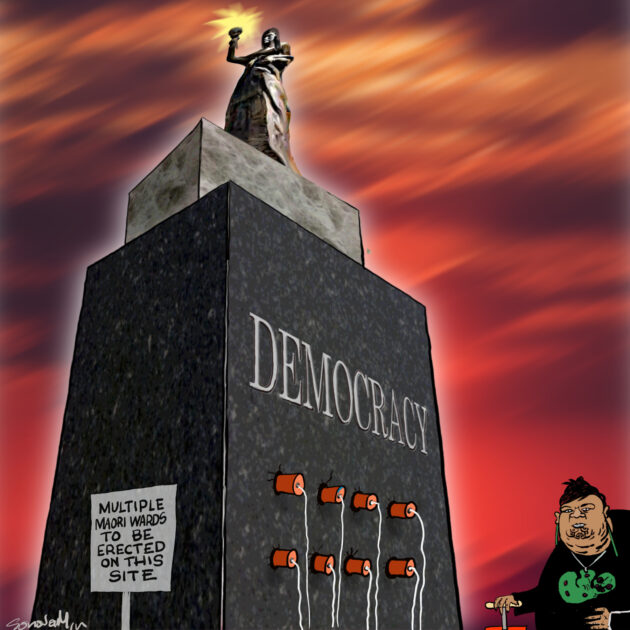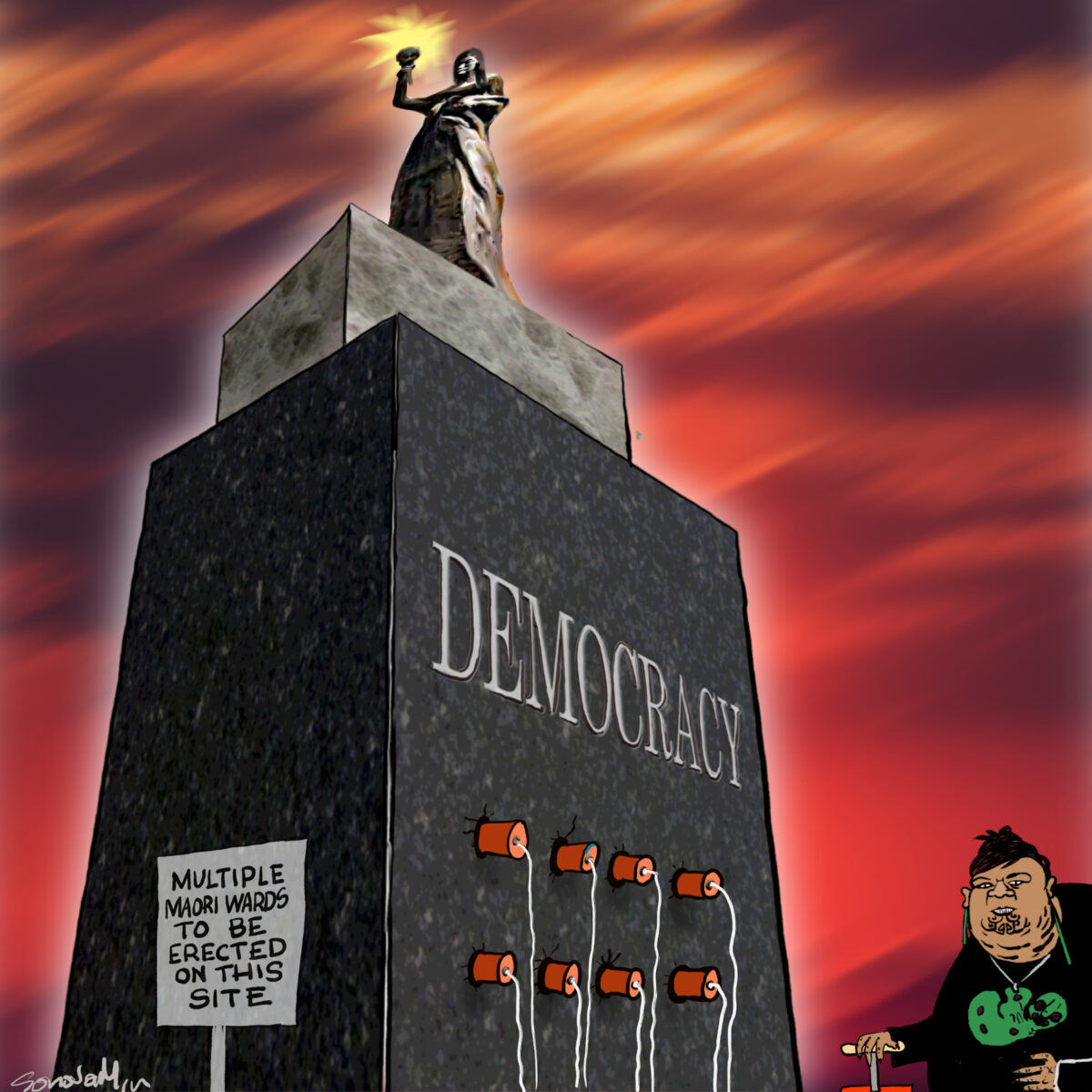Michael Bassett
bassettbrashandhide.com
Political historian Michael Bassett CNZM is the author of 15 books, was a regular columnist for the Fairfax newspapers and a former Minister in the 1984-1990 governments
At last some discussion about He Puapua. The document has been hatched in secret at the behest of the Labour Government and it had to be prized out of Te Puni Kokiri recently using the Official Information Act.
Commissioned by Nanaia Mahuta, He Puapua was written by nine people, most of them with European surnames. It is a plan to introduce racial segregation into every aspect of our public service. It would divide our society into Maori who form 16% of the population on which 50% of political power would devolve by 2040, while the other 170 ethnicities in this country who constitute 84% of the population would share the rest. The 16% would enjoy their privileged position because they possess a drop or more of Maori blood. Without that drop, the rest of us are destined to become a rather crowded group of second-class citizens.

Mahuta carefully selected her group of advisers to produce a vision of how New Zealand could be brought into compliance with the 2007 UN Declaration on the Rights of Indigenous Peoples. When the report came to ministers in 2019 it wasn’t released publicly, probably because the Labour government realized that it might be unpopular. No mention was made of He Puapua at the time of the 2020 election. Instead, once re-elected, ministers seem to have decided to implement its separatist recommendations in dribs and drabs.
Mahuta has given us Maori wards in local authorities, over-riding public opinion, and shortly Andrew Little will establish a separate Maori Health Authority. It will exercise power in the area of Maori health and also enjoy some rights – yet unexplained – to interfere in health decisions relating to the rest of us.
He Puapua proposes separate court and justice systems and contains a timetable for the establishment of a Maori Parliament. We know, too, that the government intends to inflict a disgracefully one-sided history curriculum on our schools, pushing the notion that only Maori values have been important to New Zealand’s history, and that the values of the colonizers who brought reading, writing, arithmetic and a system of justice to a country ravaged by the musket wars in the early Nineteenth Century are of no historical importance.
Why is New Zealand concerning itself about the UN Declaration on the Rights of Indigenous Peoples with its clauses about freedom and equal treatment? In 2007 New Zealand, Canada, Australia and the United States voted against the Declaration, and only came around to joining up (with qualifications) several years later. New Zealand joined because of political pressure on John Key’s government from the Maori Party. In 2007 each of the four opponents of the Declaration possessed well-developed human rights guarantees in their constitutional structures that protected all minorities, including their indigenous people. Moreover, there was quite a strong feeling that Maori, who beat Europeans to settle New Zealand by only 400 to 500 years, were hard pressed to argue they were indigenous.
Certainly, they didn’t compare with Aborigines who had arrived in Australia 60,000 years ago, nor some of the first nations in other parts of the world. What is more, Maori had the security of a Treaty with New Zealand’s colonizers, Article 3 of which contained a guarantee that the Crown would “protect all the ordinary people of New Zealand (ie the Maori) and will give them the same rights and duties of citizenship as the people of England.” No other colonized people anywhere in the world received such a guarantee. Helen Clark’s government seems, quite rightly in my opinion, to have decided that signing up to the UN Declaration couldn’t further protect Maori rights.
How come therefore that He Puapua has now emerged as a political issue? It seems clear that some people with Maori ancestry perceive in the UN Declaration an opportunity to propel themselves into elite status over and above the rest of their fellow Kiwis. Ancient Maori society, as Mahuta well knows, was very hierarchical with its own royalty, chiefs and slaves; the modern He Puapua Maori agitators aren’t happy with equality that is everyone’s current lot and want to entrench themselves in superior positions.
Whether all of Jacinda Ardern’s cabinet share this aspiration for Maori isn’t yet clear, although they haven’t denied it, and we are entitled to suspect they do. One thing is clear: when Judith Collins gave her very carefully worded speech to the Auckland National Party conference last weekend, no minister denied that He Puapua was the Labour government’s long-term intention. Speaking for the government, Kelvin Davis’ only contribution was to abuse Collins. Shouting “racism” at anyone who questions anything to do with Maori seems now to be a universal comeback, no matter whether a sensible answer is needed or not.
The mere fact that this government is contemplating entrenching racial divisions in New Zealand society reminds us how young and inexperienced the current ministry is. The New Zealand Labour Party invested a lot of energy forty and fifty years ago fighting on behalf of those subjected to racial oppression in South African society. The Third Labour Government opposed the planned Springbok Tour to New Zealand in 1973 because its players were selected on the basis of race, and the entire Labour caucus in 1981, the year after Jacinda Ardern was born, protested vigorously against the arrival of a Springbok team in New Zealand, again because it was selected by race. Few if any of the current ministry seem to have any memory of what was once a key article of Labour faith: all people, irrespective of their racial origin, have a right to equal treatment.
Please share so others can discover The BFD.

